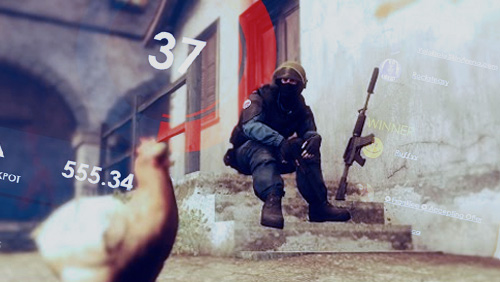ESports game developer Valve Corp.’s crackdown on video game skin gambling websites is finally paying off more than a month after the skin scandal broke out.
 The latest and biggest casualties in this war on skin gambling websites is CS:GO Lounge, which has made an announcement on Facebook on Wednesday that they are finally ending their onsite betting for good.
The latest and biggest casualties in this war on skin gambling websites is CS:GO Lounge, which has made an announcement on Facebook on Wednesday that they are finally ending their onsite betting for good.
“Today we are announcing that we are closing our virtual items betting functionality with immediate effect. Depositing virtual skins and items in order to place a bet is not possible anymore,” the website said. “At the moment we are working on a solution for items withdrawal, please stay tuned for an update on this topic.”
Without its skin betting operations, CS:GO said that the company and its sister site Dota2Lounge will remain as an e-Sports entertainment and information platform which will offer new features to the public “very soon.”
CSGO Lounge was one of the 23 most popular and well known Counter-Strike: Global Offensive skin gambling destinations that received a cease and desist order from Valve in the light of the scandal involving YouTube eSports stars Trevor “Tmartn” Martin and Tom “ProSyndicate” Cassel.
Valve, which is facing two separate lawsuits in Connecticut and Florida for its alleged relationship with skin betting websites, denied it profited in any manner from the earnings skin gambling. To show their independence, it sent notices to skin betting sites and ordered them to stop the use of their Steam accounts for any commercial purpose.
“We are going to start sending notices to these sites requesting they cease operations through Steam, and further pursue the matter as necessary,” said Valve’s Erik Johnson, in a statement released on July 13. “Users should probably consider this information as they manage their in-game item inventory and trade activity.”
CS:GO, which have probably processed over 90 million skins in betting handle this year alone, for its part, made a futile attempt to continue on with its operations before it finally gave in to stop its gambling operations.
At first, CS:GO creator allegedly snubbed Valve’s order as it tried to seek license to “legally operate in most countries and be able to accept the eSports bets by our community as if it would be real money.”
It also informed their players that their site will limit opportunity for their members to bet on areas where betting on eSports is forbidden. Countries cited on the site’s banned list included Belgium, France, Spain, and the United Kingdom, and the United States.